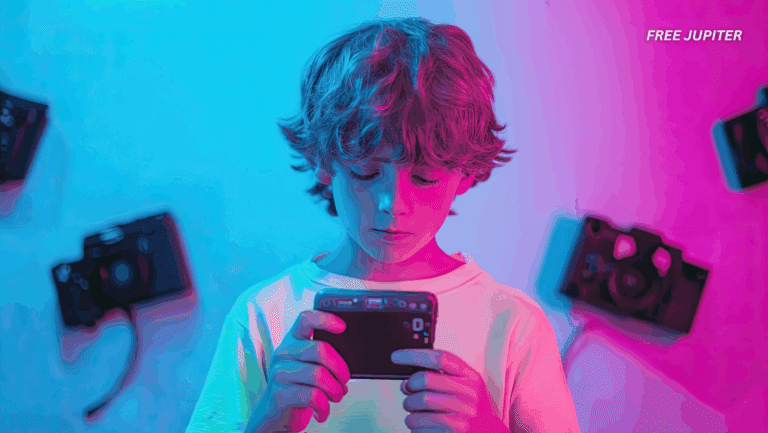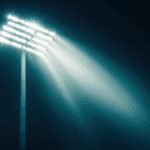Imagine this: you’re focused on a task—maybe you’re reading, typing, or deep in conversation—and suddenly, your eyelid starts to flutter like it’s got a mind of its own. It doesn’t hurt. It’s not exactly visible to others. But you definitely feel it. It’s strange. Random. And just plain annoying.
Welcome to the world of eye twitches.
These spontaneous little spasms have baffled people for centuries. Some call them harmless, others find them distracting, and a few even worry they might signal something serious. So what’s the real deal?
Let’s break it down into simple, no-nonsense language.
What’s Really Going On Behind the Twitch?
The scientific name for this involuntary flutter is myokymia—but don’t let that intimidate you. All it means is that a small muscle, usually in your upper or lower eyelid, is twitching without your permission.
These twitches can last for a few seconds, a few minutes, or sometimes come and go throughout the day. They can pop up in just one eye or bounce between both. And while they feel dramatic, most people won’t even notice them unless you mention it.
So, no—it’s not a sign you’re short-circuiting. In most cases, it’s your body waving a little white flag that says: “Hey, I need some attention!”
Common Causes of Eyelid Twitching
There isn’t one single cause for these mysterious twitches. But over time, experts have identified a long list of everyday triggers:
1. Stress
Probably the biggest culprit. When you’re overwhelmed, your body tenses up—sometimes even the muscles around your eyes. The more stress you carry, the more your body looks for little ways to release it. Enter: the twitch.
Read more: New Research Links Popular Over-the-Counter Medication to Brain Health Issues
2. Fatigue
Did you sleep poorly last night? Or maybe you’ve been pushing through long days without a break? Fatigue stresses your nervous system, which can lead to nerve misfires like muscle spasms.
3. Caffeine and Alcohol
That third cup of coffee or after-work wine may taste great, but both caffeine and alcohol can overstimulate your nerves, leading to twitching.
4. Digital Eye Strain
Staring at screens for too long—whether it’s your laptop, phone, or TV—can tire out your eye muscles. When they’ve had enough, they might twitch to let you know.
5. Environmental Factors
Windy days, bright lights, smoke, or even allergies can irritate your eyes and surrounding muscles, triggering spasms.
6. Dry Eyes
People who wear contact lenses or spend hours in air-conditioned spaces may experience dry eyes, which can lead to irritation and twitching.
7. Smoking and Certain Medications
Nicotine stimulates nerves and muscles in the body. Some medications—especially those affecting the brain and nervous system—can cause similar overactivity.
When to Shrug It Off… and When to Call a Doctor
Most eye twitches are like the hiccups of the eyelid world: weird, unpredictable, and harmless. But there are times when they’re worth taking seriously.
👉 Call your doctor if:
- The twitch lasts longer than two weeks without letting up.
- It spreads to other parts of your face, like your cheek or mouth.
- You notice muscle weakness, drooping, or stiffness around the eye.
- You suspect a medication side effect could be involved.
- The twitch is interfering with your ability to see, sleep, or function.
Sometimes, persistent twitching may point to a condition called benign essential blepharospasm, or in rare cases, to neurological issues such as hemifacial spasm. These conditions are far less common but are worth ruling out if the twitching escalates.
Read more: Experts Say They’ve Pinpointed the Cause of Autism—And It Could Lead to New Treatments
How to Calm the Twitch and Reclaim Your Peace
The good news? You don’t need a prescription to tackle most eye twitches. A few simple lifestyle changes can make a big difference:
🛏️ Get More Rest
Your eyes need sleep as much as your brain does. Prioritize getting at least 7–9 hours of quality sleep each night.
🧘♀️ Manage Stress
Since stress is a leading cause of twitches, managing it is key. Try:
- Meditation or yoga
- Breathing exercises
- Journaling or mindfulness apps
- Laughing more (seriously—it helps)
- Spending time with people who make you feel good
☕ Limit Caffeine and Alcohol
If your twitch tends to show up after your fourth espresso or weekend drinks, scale back and see what happens.
👁️ Take Breaks from Screens
Follow the 20-20-20 rule: every 20 minutes, look at something 20 feet away for 20 seconds. It gives your eyes a mini workout and prevents strain.
💧 Keep Your Eyes Moist
Use artificial tears if you’re prone to dry eyes, especially if you wear contacts or work in dry environments.
🥗 Eat a Balanced Diet
Magnesium deficiency has been linked to muscle spasms. Include magnesium-rich foods like leafy greens, nuts, and whole grains in your meals.
Eye Twitching Myths Debunked
- Myth: “If my eye twitches, someone’s talking about me.”
Nope. That’s an old superstition. Eye twitches are biological, not social gossip sensors. - Myth: “It means I’m getting sick.”
Not necessarily. A twitch is rarely a sign of illness on its own. Only if it pairs with other symptoms should you be concerned.
Final Thoughts: Listen to the Blink
That little flutter in your eyelid might be annoying, but it’s also a gentle nudge from your body saying, “Let’s slow down a bit.” Most of the time, eye twitching is more about lifestyle than illness.
So breathe deep, step away from the screen, sip some water—and maybe take a nap. Your eyes (and your nervous system) will thank you.
Read more: There Are People Who Are ‘Allergic’ To Other Humans. Here’s Why.
📱 How Too Much Screen Time Impacts Your Vision and Brain
In our ultra-digital world, screen time is like oxygen—we rely on it to work, socialize, shop, and even relax. But your eyes and brain? They didn’t exactly evolve with endless scrolling in mind. While it’s convenient to stay connected 24/7, spending too much time staring at screens comes with some unexpected side effects—especially for your vision and your mind.
Let’s break it down.
👀 What Happens to Your Eyes?
Your eyes are hardworking little organs, but when you’re glued to a screen, they don’t get the breaks they need.
1. Digital Eye Strain
Also called Computer Vision Syndrome, this includes symptoms like:
- Blurry vision
- Dry or itchy eyes
- Headaches
- Trouble focusing
This happens because we blink less when staring at screens—sometimes up to 66% less. Less blinking means less lubrication, which leads to dryness and discomfort.
2. Blue Light Overload
Screens emit blue light, which can disrupt your natural sleep-wake cycle by tricking your brain into thinking it’s daytime. That’s why late-night scrolling can leave you feeling wired when you should be winding down.
Over time, some experts worry that too much blue light may contribute to retinal stress—though this is still being studied.
3. Eye Muscle Fatigue
Just like any other muscle, your eye muscles get tired. Constantly focusing on a close-up object like a phone or laptop means they’re always working—and never relaxing.
🧠 What Happens to Your Brain?
Your brain isn’t immune to screen-time stress either. It’s constantly processing images, notifications, and content at lightning speed.
1. Sleep Disruption
Exposure to screens—especially at night—suppresses melatonin, the hormone that helps you fall asleep. Poor sleep affects memory, focus, and emotional balance.
2. Reduced Attention Span
Switching between apps, tabs, and tasks might feel productive, but it actually reduces your brain’s ability to sustain attention over time. The constant flow of digital information can rewire your brain to crave fast rewards, making it harder to concentrate on slower-paced activities like reading a book or holding a deep conversation.
3. Mental Burnout
Too much information + too little rest = cognitive overload. The brain, like any machine, needs downtime to process and recharge. Without it, mental fatigue sets in.
🧩 Tips to Protect Your Vision and Mind
You don’t need to quit screens altogether (that would be ironic, wouldn’t it?). Just try to use them more mindfully:
- Follow the 20-20-20 rule: Every 20 minutes, look at something 20 feet away for 20 seconds.
- Use blue light filters or glasses, especially in the evening.
- Set screen curfews: Power down devices at least an hour before bed.
- Blink more consciously during screen use.
- Take regular tech breaks—even five minutes of looking out a window can reset your mind.
Final Thought
Your screens may connect you to the world, but they can also disconnect you from your own well-being if used excessively. So go ahead, check your messages—but maybe not during dinner. Your eyes, brain, and sleep schedule will thank you.










